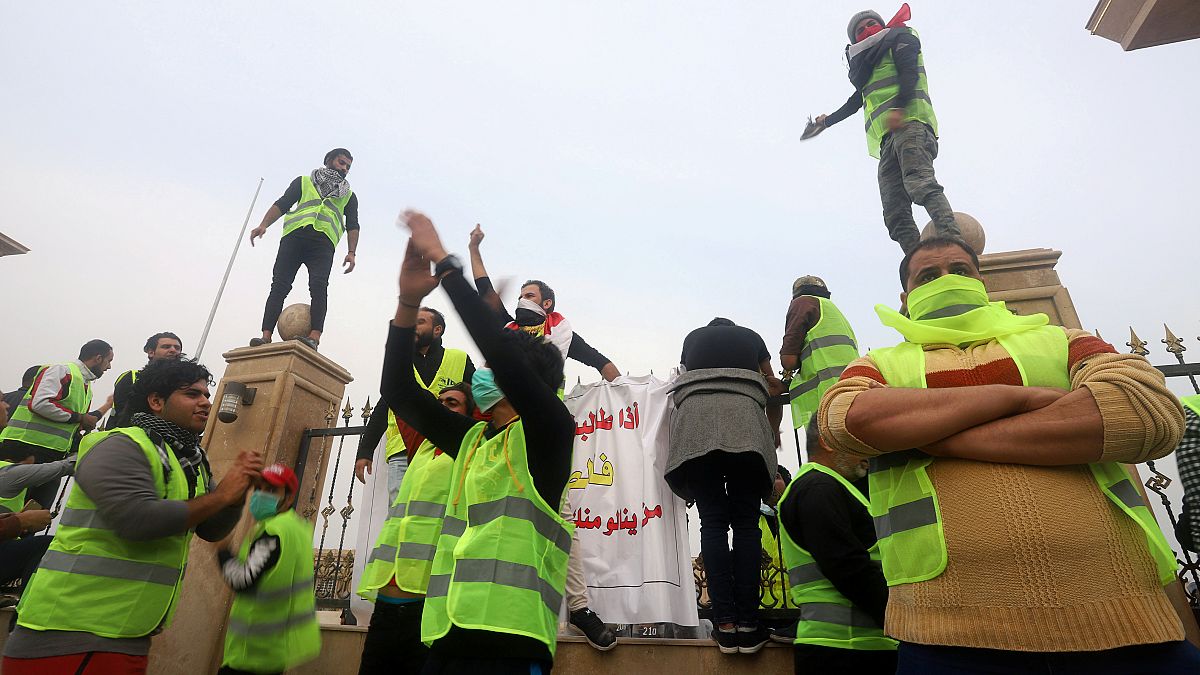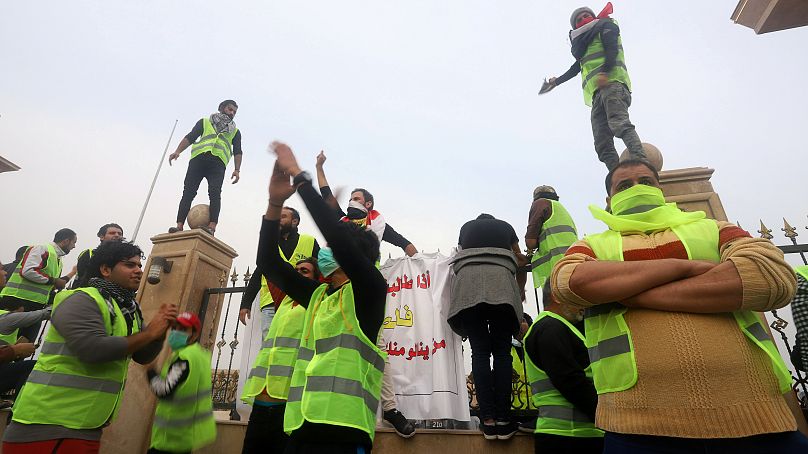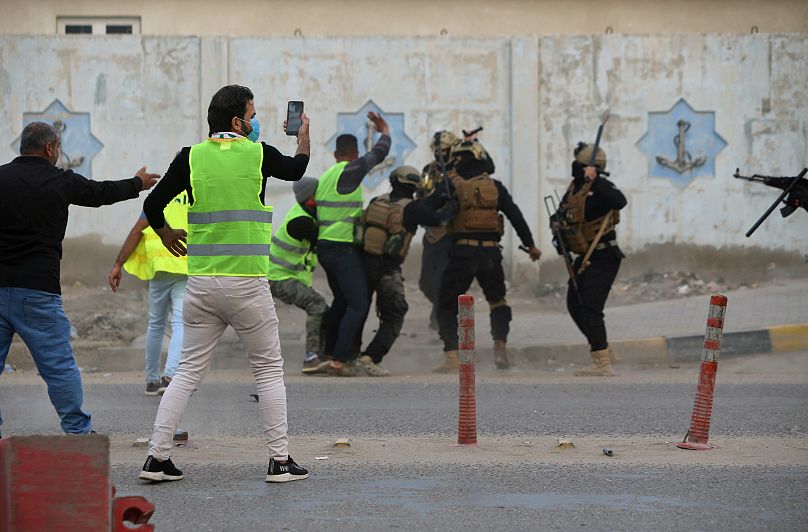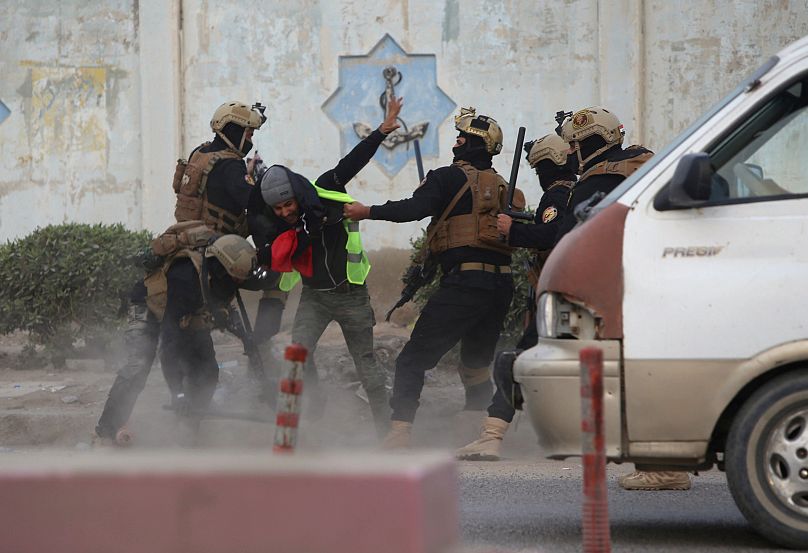As spokespeople for the 'gilets jaunes' (yellow vests) movement called for protesters to mobilise in France for a further weekend of demonstrations, we look at where the movement has spread to beyond the hexagon's borders.
While spokespeople for the "gilets jaunes" (yellow vests) called for protesters to mobilise in France for further demonstrations this weekend, the movement has been spreading to other countries around the world.
The movement started on November 17 on social media as a response to hikes in fuel taxes and has since snowballed to include protests against social inequalities.
READ: 'Gilets jaunes': who are they and what do they want?
Here we take a look at where the "gilets jaunes" have been sighted beyond France's borders and what they have been calling for.
Serbia
A member of the opposition in Serbia on Tuesday donned a yellow vest in the Serbian parliament to protest high fuel costs.
"We want normal prices for gasoline, or you will have yellow vests on the streets of Belgrade and Serbia," warned Bosko Obradovic, head of the nationalist right-wing Dveri.
It came as French President Emmanuel Macron on Monday postponed his trip to the Balkan country for several weeks as he sought a way out of the crisis prompted by the movement.
Iraq
Demonstrators in Iraq used the yellow vest symbol as they took to the streets in anti-government protests in the southeastern city of Basra on Tuesday.
As many as 100 people later stormed the office of Basra Governor Asaad al-Eidani demanding basic services including water and electricity.
One organizer, Naqeeb Luaibi, told NBC News that the choice of outerwear was already familiar to Iraqis before the "gilets jaunes" movement.
He explained demonstrators speaking out against government corruption dressed similarly in 2015.
"We thought that we would be more organized if we wear these vests," he said.
Belgium
The yellow wave spread north from France and reached the centre of Brussels last Friday.
Local media estimated around 300 to 400 protesters marched in the Belgian capital.
Demonstrators blocked Rue de la Loi, where EU institutions are based, as well as the surrounding area of Trône. Police fired tear gas and water cannons at the crowds and two police vans were set on fire.
Germany
Despite the movement being small-scale compared to the one in neighbouring France, yellow vest protests have sprung up in several German cities, in this case, linked to right-wing groups in the country.
Right-wing Alternative for Germany (AfD) politician Doris von Sayn-Wittgenstein has declared her support for the "gilets jaunes" on Facebook: "One thing must be given to the French: in fashion, they show taste, I'm wearing yellow now, and you?"
Spain
Spain, which was affected by border blockings carried out by the French yellow vests, doesn't have an established movement but the idea has seduced many.
Some on social media claim to be "Chalecos Amarillos" (yellow vests) and a call went out to demonstrate on Saturday in the centre of Madrid.
An activist claiming to be from the movement told El Confidencial digital newspaper that he has received support from different profiles including farmers, industry workers in northern Spain who were unemployed, port workers and taxi drivers, angry at a decline in their living conditions.
Hungary
The Hungarian Socialist Party (MSZP) asked its supporters to wear yellow vests at a demonstration on Saturday.
The protest opposes a draft law that would allow companies to ask employees to work up to 400 extra hours per year.
MSZP's reasoning was what worked in Paris, would work on the streets of Budapest.
Further action in France
In France, Prime Minister Édouard Philippe on Tuesday announced some concessions that included a six-month suspension of controversial increases to fuel taxes.
While this was the first major u-turn for Emmanuelle Macron's administration, many said they did not go far enough.
READ: Will Macron stand down and listen to the ‘gilets jaunes’?
"The French don't want crumbs, they want a baguette," yellow vest spokesman Benjamin Cauchy told French news channel BFM.
Eric Drouet, one of the movement's most famous instigators, called for a "return to Paris" on Saturday, "near the places of power, the Champs-Élysées, the Arc de Triomphe, Concorde".



